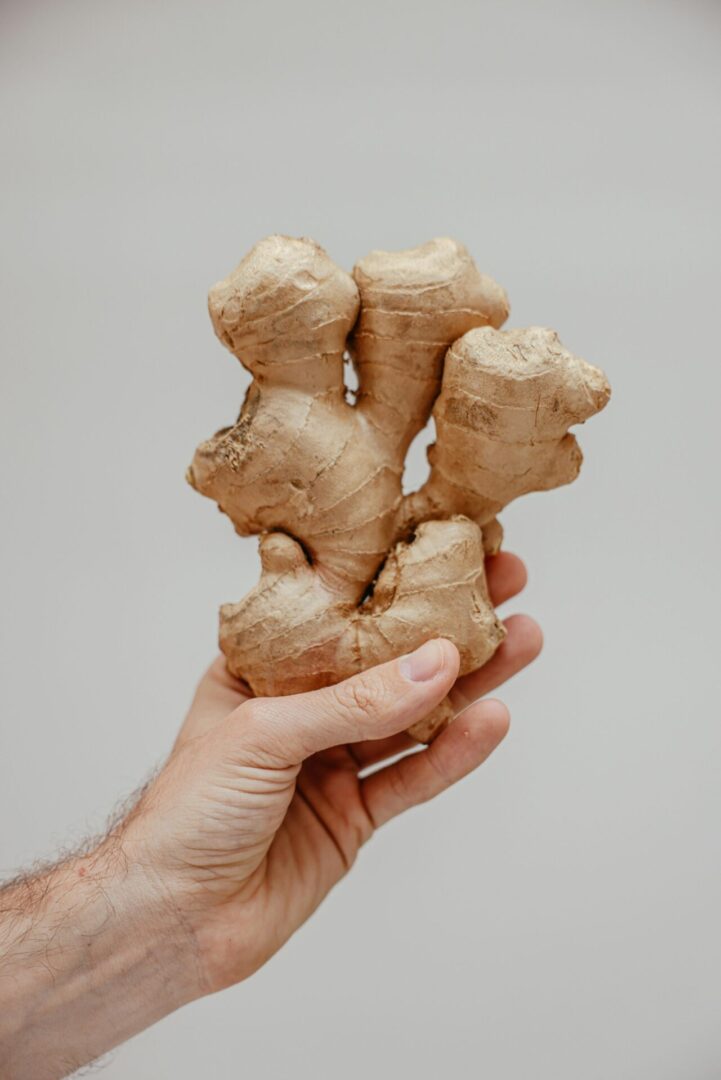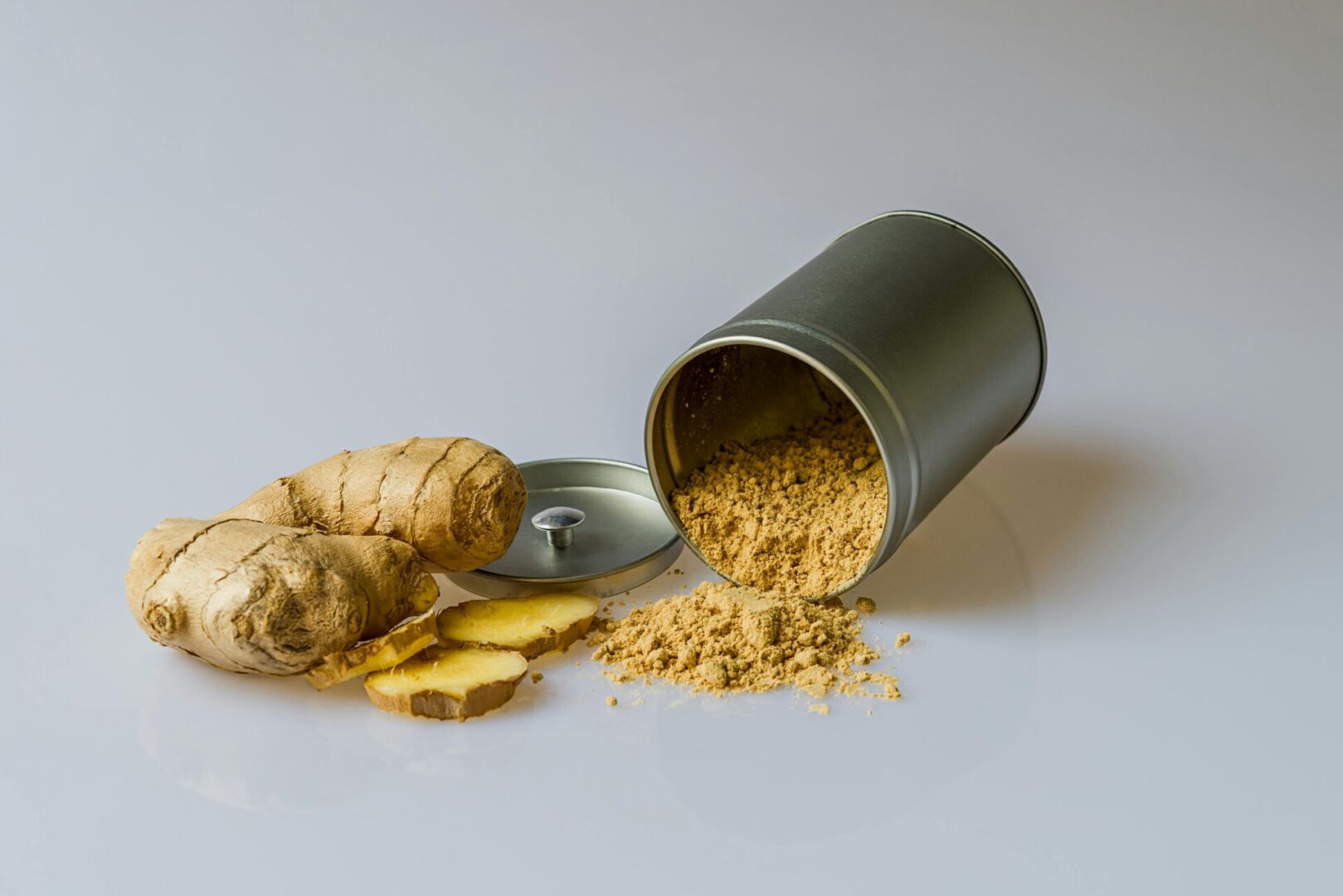A Brief History of Ginger Essential Oil
Ginger essential oil, derived from the rhizome of the plant Zingiber officinale, has been a revered natural remedy for thousands of years. Originating in Southeast Asia, ginger was first cultivated and used by the ancient Chinese and Indian civilizations. The spice eventually made its way to the Mediterranean through the spice trade, where it became a staple in both culinary and medicinal applications. Over the centuries, ginger has evolved from a valuable trade commodity to a widely accessible remedy used worldwide. Its essential oil, in particular, has gained immense popularity for its potent therapeutic properties.

Why Ginger Essential Oil is a Favorite Essential Oil to Balance the Digestive System and Its Anti-Nausea Effects
Ginger essential oil stands out as a favorite among essential oils, particularly for its ability to balance the digestive system and combat nausea. Its unique blend of therapeutic actions, including being a digestant and stomachic, makes it exceptionally effective in promoting digestive health. The oil’s antiemetic properties are particularly valued for providing relief from nausea and motion sickness, making it a go-to remedy for travelers and those with digestive issues.
The Top 5 Uses of Ginger Essential Oil
Ginger essential oil is incredibly versatile, offering numerous benefits that make it a must-have in any essential oil collection. Here are the top five uses:
- Digestive Health: Ginger essential oil acts as a powerful digestant and stomachic, helping to alleviate indigestion, bloating, and discomfort. Its ability to stimulate digestion makes it an excellent remedy for enhancing overall digestive function.
- Anti-Nausea: Known for its antiemetic properties, ginger essential oil is highly effective in reducing nausea and vomiting. It is particularly beneficial for those experiencing motion sickness, morning sickness during pregnancy, or chemotherapy-induced nausea.
- Pain Relief: With its analgesic properties, ginger essential oil can help alleviate pain and inflammation. It is commonly used to soothe muscle aches, joint pain, and headaches, providing natural relief without the side effects of conventional painkillers.
- Respiratory Health: Ginger essential oil acts as an expectorant, helping to clear mucus from the respiratory tract. It is useful for relieving symptoms of colds, flu, and respiratory infections, promoting easier breathing and faster recovery.
- Emotional Well-being: As a stimulant and tonic, ginger essential oil can enhance mood and boost energy levels. Its warming and invigorating scent can help reduce feelings of fatigue, depression, and anxiety, making it a great addition to aromatherapy practices.
Therapeutic Actions of Ginger Essential Oil
Ginger essential oil boasts a wide range of therapeutic actions that contribute to its numerous health benefits:
- Antibacterial: Helps to inhibit the growth of bacteria, making it useful for treating infections and preventing illness.
- Analgesic: Provides pain relief by reducing inflammation and soothing sore muscles and joints.
- Aphrodisiac: Enhances libido and sexual function, helping to improve intimacy and relationships.
- Antiemetic: Prevents and alleviates nausea and vomiting, particularly beneficial for motion sickness and pregnancy-related nausea.
- Expectorant: Clears mucus from the respiratory tract, aiding in the treatment of colds, flu, and bronchitis.
- Febrifuge: Reduces fever, providing natural relief from high temperatures and associated symptoms.
- Laxative: Promotes bowel movements, helping to relieve constipation and maintain regularity.
- Digestant: Enhances digestion by stimulating the production of digestive enzymes, reducing bloating and discomfort.
- Stimulant: Increases energy levels and improves circulation, helping to combat fatigue and lethargy.
- Stomachic: Strengthens and tones the stomach, improving overall digestive health and function.
- Tonic: Provides overall strengthening and invigorating effects on the body, enhancing vitality and well-being.
The Evolution of Ginger Essential Oil
Throughout history, ginger has been used in various forms, from fresh and dried root to powdered spice and essential oil. Ancient texts from China and India document its use in treating ailments such as digestive disorders, respiratory issues, and pain. In the Middle Ages, ginger was highly prized in Europe for its medicinal properties and was often used to make gingerbread, a luxury treat. Today, ginger essential oil continues to be a staple in holistic health practices, valued for its concentrated therapeutic benefits and versatility.
The Benefits of Ginger Tea
While ginger essential oil is incredibly potent, ginger tea also offers numerous health benefits. Made by steeping fresh or dried ginger root in hot water, ginger tea is a soothing beverage that can:
- Aid Digestion: Like the essential oil, ginger tea helps to stimulate digestion and reduce symptoms of indigestion.
- Relieve Nausea: A warm cup of ginger tea can effectively calm an upset stomach and alleviate nausea.
- Boost Immunity: Ginger tea is rich in antioxidants and anti-inflammatory compounds, supporting overall immune health.
- Soothe Sore Throats: Its warming and anti-inflammatory properties make ginger tea a natural remedy for sore throats and respiratory infections.
- Promote Relaxation: The calming effects of ginger tea can help reduce stress and promote relaxation, making it a great evening beverage.
Best Practices for Using Ginger Essential Oil
To maximize the benefits of ginger essential oil, consider the following best practices:
- Aromatherapy: Diffuse ginger essential oil in a diffuser to enjoy its invigorating and mood-boosting aroma. This method is particularly effective for reducing nausea and enhancing emotional well-being.
- Topical Application: Dilute ginger essential oil with a carrier oil, such as coconut or jojoba oil, before applying it to the skin. This can help relieve muscle and joint pain, as well as improve digestion when applied to the abdomen.
- Inhalation: Add a few drops of ginger essential oil to a bowl of hot water and inhale the steam to clear respiratory passages and relieve congestion.
- Bath: Add a few drops of ginger essential oil to a warm bath for a soothing and invigorating experience that can relieve muscle tension and promote relaxation.
- Massage: Incorporate ginger essential oil into massage blends to enhance circulation, reduce pain, and promote overall relaxation.

Ginger essential oil is a true powerhouse in the world of natural remedies. With its wide range of therapeutic actions, it can address numerous health concerns, from digestive issues and nausea to pain relief and emotional well-being. Its rich history and enduring popularity attest to its effectiveness and versatility. Whether you use it in aromatherapy, topically, or in a relaxing bath, ginger essential oil is a must-have addition to your holistic health toolkit. Embrace the benefits of this ancient remedy and discover why it remains a favorite essential oil for so many.
LIVE YOUR LIFE!
Fleur Aromatherapy. 😊
#gingeressentialoil #zingiberofficinale #antinausea #digestive #anti-inflammatory #naturalperfume #essentialoilsrock #professionalclinicalaromatherapy


